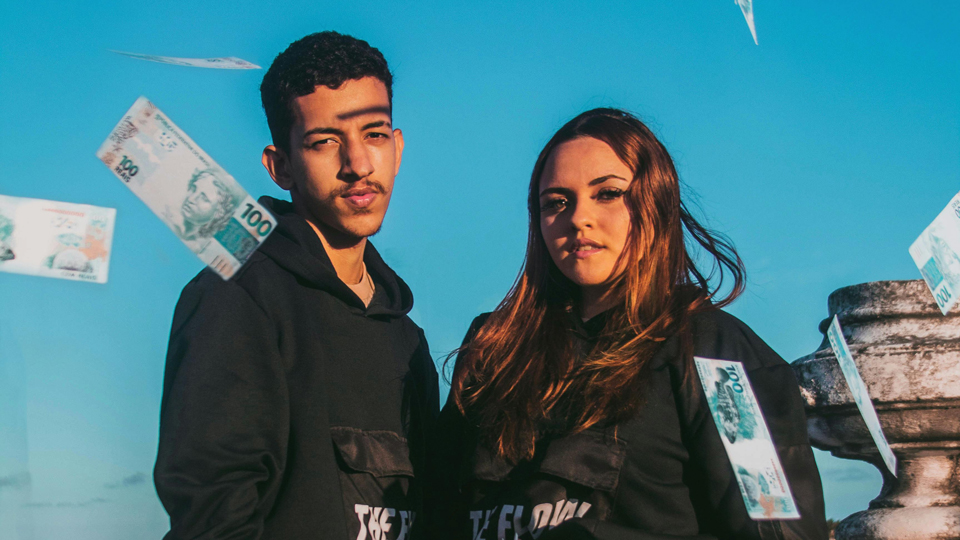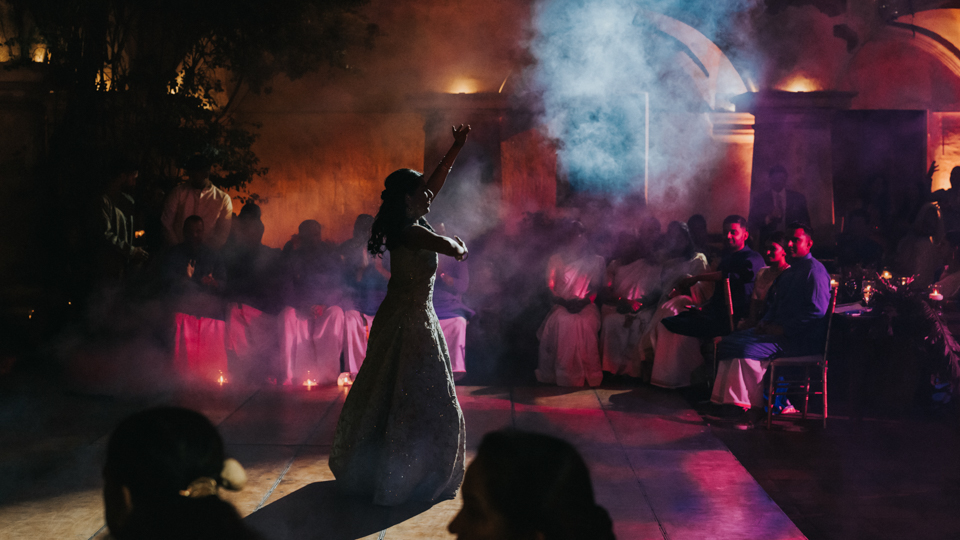
Cue the Tuscan villa. The destination wedding has the best of both worlds: It’s a wedding, holiday and possibly even a honeymoon all in one. Here’s our guide to hosting one.
Planning a wedding is a stressful affair in of itself; now how about adding an international location to the mix? How about the local customs, laws, and regulations? Or what if you are feeling adventurous, and thinking about having a wedding in a place you’ve never been?
(Cue all the gasps.)
Even if you’re looking to cut the guest list—let’s face it, guests are expensive and those closest to you will only jump on an international flight to make it out for the nuptials—there are a lot of reasons to choose a location far from home.
Besides, the ones invited that can’t make it will still likely send a gift. 🙂
For this, we interviewed wedding stylist and WESTxEAST founder Tania Kottoor, who threw such a noteworthy affair for herself and her husband that it ended up in Brides.
Notably, it was a place that neither of them had ever been to before.
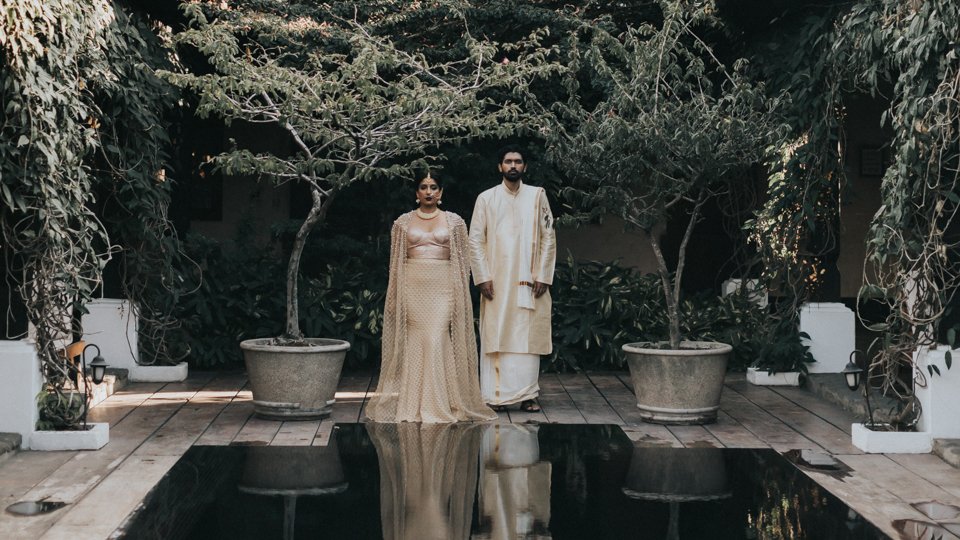
(Courtesy of Tania and Jacob Kottoor)
Kottoor, who herself specializes in creating bespoke wedding garments for a living, wanted something of the ordinary for her own lavish Indian ceremony to husband Jacob Kottoor.
Instead of choosing the traditional all-inclusive option, Kottoor desired for something with more character and history, and for something that reflected her and her unique relationship with her husband.
They picked Antigua, Guatemala.
Though some challenges of planning a wedding and a destination wedding remain the same, there are nuances to planning a faraway destination, Kottoor notes.
Here are the five biggies you’ll want to be concerned with regarding those nuptials. Then, it’s time to let the celebrations begin.
Location
It’s not a destination wedding without a destination in mind. In fact, it is all about the destination.
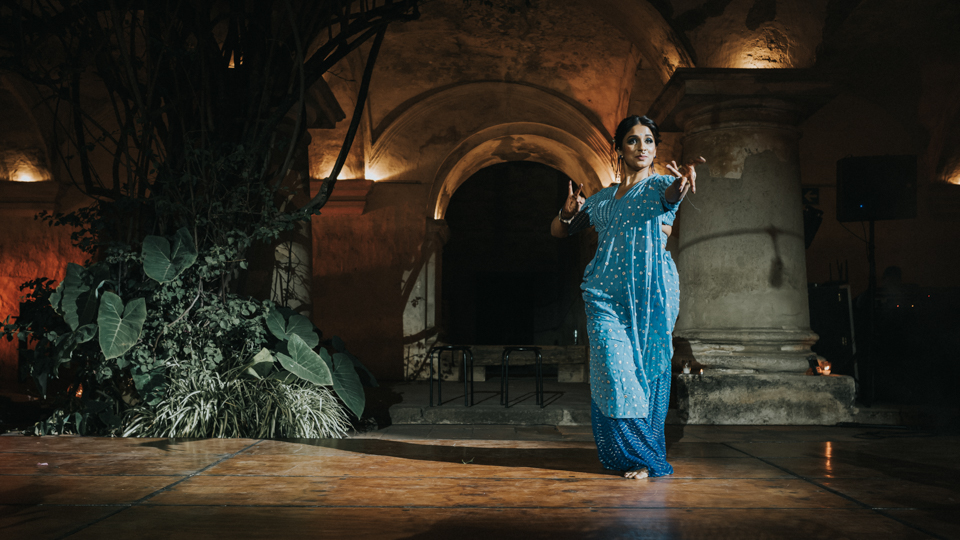
(Courtesy of Tania and Jacob Kottoor)
In particular, Kottoor wanted to shy away from the traditional Mexican escape, noting how trapped she felt as a guest of other destination weddings, and how limited the opportunity was to explore outside their surroundings.
It wasn’t until she was browsing online through the wedding of Jazmyn Simon and Dulé Hill (both actors on Ballers) that the inspiration for Antigua landed with its aged, characteristically unfiltered ruins.
Antigua also hit the sweet spot for its relatively affordability, proximity to the U.S., character and for an opportunity to discover the unknown.
Don't be deceived by distance: Opting for a small country Italian villa or French château out in Europe can be more affordable than initially meets the eye, based on different costs of living around the world.
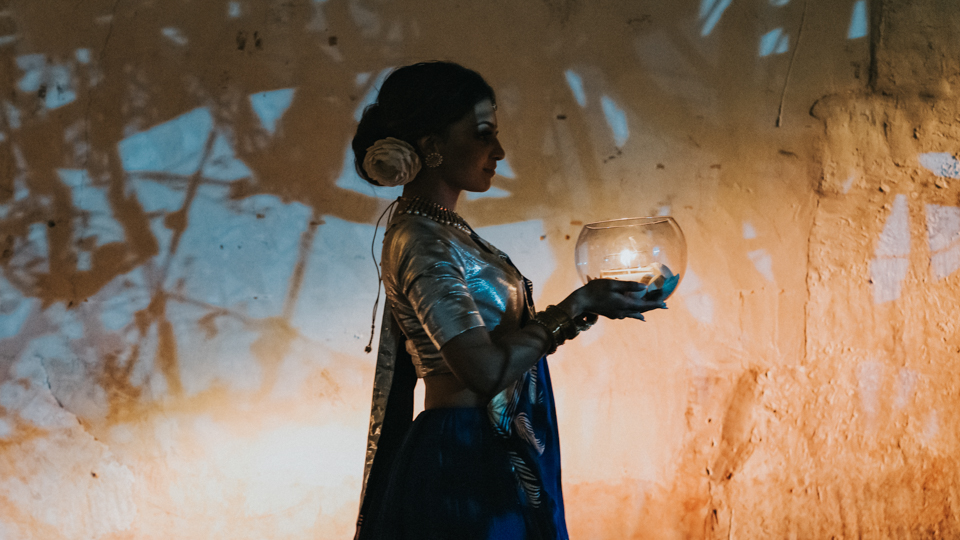
(Courtesy of Tania and Jacob Kottoor)
Budget
By the time the tally was over, Kottoor says her wedding in Guatemala ended up costing $100,000 for about 3 events for 125 guests.
In comparison, she estimates it would have cost $250,000 to host two events for approximately 1,000 guests in the U.S.
The savings for her to host a destination wedding was about $150,000; the icing on the literal cake was that she was able to cater an additional event, and curate her guest list further.
Time
Give ample time. The more, the better, and Kottoor said it took the full year they had allotted to plan and execute the wedding.
Aside from just giving yourself more time to plan, it also gives guests time to plan around work schedules, vacation time and childcare to attend the wedding.
Kottoor did end up visiting Antigua six months before the wedding for the first time, prior to the wedding.
By that point, the tastings were all booked, and the full week was dedicated to finalizing the venues, vendors, food, and all the extravagant, and yet intensely intricate details that an Indian ceremony calls for. They've checked out various venues such as this event space rental near Clinton Township and see if it would be perfect for their wedding. Other suppliers and contractors like sound engineers who will set up the sound system at the venue have already been booked or hired.
Both Tania and husband Jacob arrived about two days before the wedding to rest and acclimate before the festivities began.
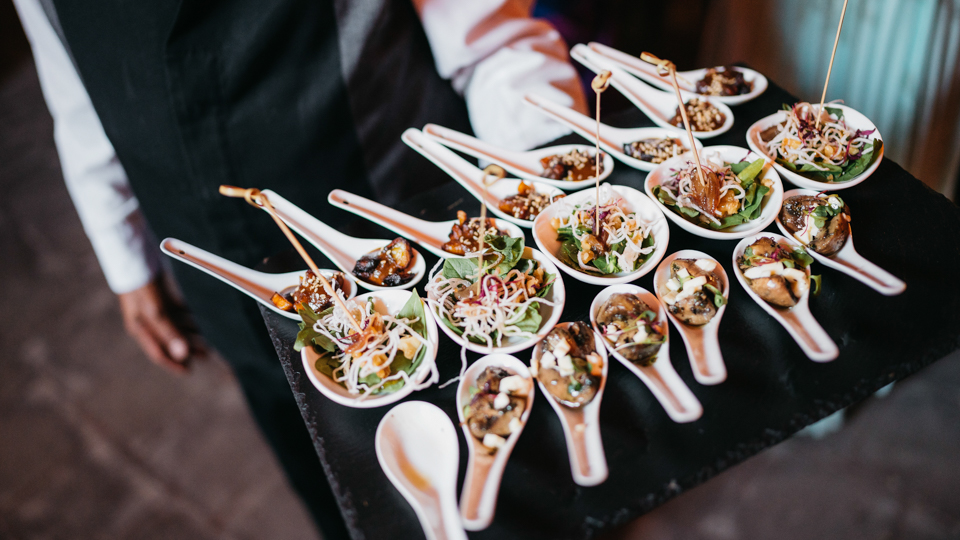
The food. (Courtesy of Tania and Jacob Kottoor)
Staff
Unsurprisingly, the single most important person in the destination wedding aside from the couple may be the wedding planner, Kottoor notes.
It is probably the most crucial part of the planning process; and it is as equally integral to find a wedding planner who is based in the destination country who knows the local laws, customs and regulations.
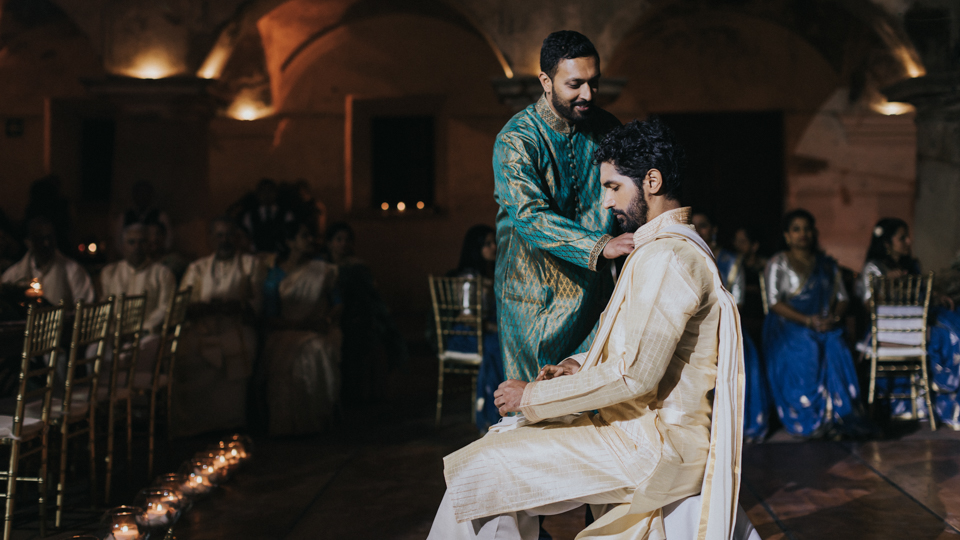
(Courtesy of Tania and Jacob Kottoor)
Though she interviewed about six planners she found through Instagram (yes! Instagram), Kottoor ended up going with the wedding planner that planned the original inspiration after interviewing all of them remotely.
(HOT TIP: Hashtags are your friends! Kottoor says she used #antiguaguatemala, #guatemalawedding, #guatemaladestinationwedding and #destinationwedding. Try some variation on that, but with your location front and center!)
Most telling, she remembers, was the wedding planner she selected was the only person who told her "no" to certain details of the vision. It was a signal that the wedding planner truly knew what she was doing, and what could be actually done.
Here are Kottoor’s list of questions that you should probably ask someone:
- How many years of experience do you have? Why did you become a wedding planner?
- How big is your team? Do they all assist during the event?
- How do you provide support before and during the wedding?
- How do you like to communicate?
- How do you handle emergencies? Can you elaborate from a past experience?
- Do you have strong relationships with vendors?
- What is included in your wedding planning package?
- What is your price rate?
- How do you handle parents of brides and grooms?
- Do you follow the same sort of “rubric” for each wedding or is each one different?
- What’s the first thing you like to know about your clients when you start working with them?
- What if a couple has absolutely no idea what their vision is?
- How do you make sure the groom is equally heard during the wedding planning process?
- What was the worst wedding that you planned? What went wrong?
For vetting the wedding planners themselves, Kottoor suggests contacting the photographers that has worked with each of the candidates, since they can often offer the most straightforward assessment of each planner's capabilities.
Kottoor highlights one conversation, "One photographer told me about one specific wedding planner who basically ruined a wedding. She just didn't know what she was doing. She was having a bad day, and she didn't solve whatever happened and basically just let go of the situation."
The only other hires Kottoor was able to sort outside the planner while in the U.S. were the photographers. For the rest of the vendors, that was finalized during her week-long planning trip.
Guests
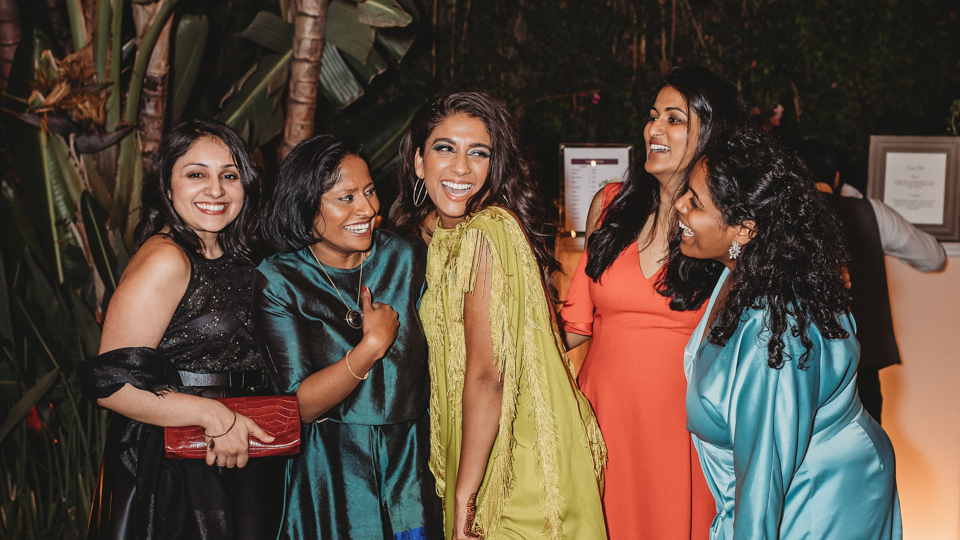
(Courtesy of Tania and Jacob Kottoor)
In a traditional wedding, the common thinking is to estimate that 80 to 85 percent of invited guests will make it to a wedding.
In a destination wedding, these numbers might be a lot lower. Even though the guest list will be much more curated than a traditional wedding, Kottoor still says to expect only about 65% of the invited guests to show up.
Three months before the wedding, Kottoor sat down with her parents to go over the website—essentially, a "presentation" she calls it— in detail, to take and answer all questions that her parents and family may have had.
As customary, Kottoor also provided a basic guest itinerary guide for those that showed up to celebrate the nuptials with her.
The bride and groom worked with a small transport company to pick up all their guests from the airport, who delivered them to the two hotels where the majority of the guests were staying at.
They also worked with the same company for the post-wedding buddymoon1 further out at Lake Atitlán.
Advice
As far as sage advice? Like most brides, Kottoor wishes she had relied on others for more help.
Because her wedding included traditions reflective of her Indian heritage, she wished she had turned to more family members she trusted and put them in charge.
"[I felt] like I had to kind of like run the show, or rely on the wedding planner, [and it's] especially [hard] if you're having a cultural wedding. They don't know what the traditions are or anything, so you have to rely on the people who can actually help execute them."
Besides, a wedding sometimes isn't just about the couple involved — it's also about the community they bring together.
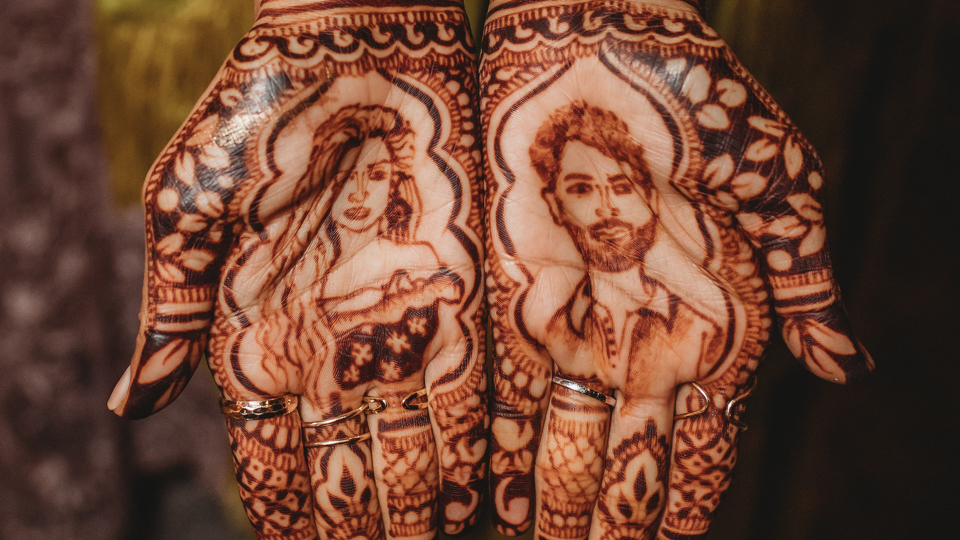
(Courtesy of Tania and Jacob Kottoor)


